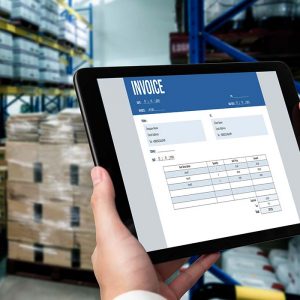
Exception-Based Automation: A Game-Changer for Transportation & Supply Chain Optimization
Organizations are continually looking for ways to drive waste out of their operations, save time, conserve resources, and reallocate labor to more strategic tasks. Unfortunately, it’s pretty easy to get in the habit of managing routine processes and tasks on a one-off basis. This not only wastes resources, but it can also impact supply chain performance and introduce new risks.
But what if you could focus only on the deviations from the norm and let automation take care of everything else? For example, an unexpected delay on a key transportation route can trigger an alert, prompting someone to “step in” and handle the issue manually. If the rest of the supply chain is operating smoothly and as planned, then team members are free to focus on more strategic, value-added tasks.
This type of exception-based automation is being used across global supply chains, with transportation management being one of its most successful—and in-demand—business use cases for the technology. A complex environment where every shipment, vehicle and fulfillment center play a critical role in getting goods from origin to destination in a timely manner, the supply chain is prone to unexpected disruptions, weather delays, traffic snarls and myriad other issues that can throw even the best laid plans off kilter within minutes.
When built into software platforms like Revenova TMS, exception-based automation proactively monitors shipments, identifies potential issues before they escalate and suggests corrective actions that minimize supply chain impacts. Where the more traditional approach involves employees who “watch” for issues and address them reactively, exception-based automation proactively identifies those issues, effectively ensuring a smoother flow of goods across the supply chain.
Kicking the “Reactive” Mindset
As he surveys the current transportation landscape, Charles Craigmile, CEO at Revenova, still sees a lot of shippers, 3PLs, and carriers spending entirely too much time monitoring routine operations. This age-old reactive approach may have sufficed 10-20 years ago, but it’s simply unsustainable in today’s fast-paced transportation market. Instead, companies need exception-based automation that helps them adapt to unforeseen challenges, reduce costs, and gain a competitive edge.
 Take less-than-truckload (LTL) freight bills, for example. It’s not unusual for these invoices to contain errors that can add up quickly when multiplied across hundreds or even thousands of shipments. Auditing every line item on every single invoice is nearly impossible, so companies will either spot check invoices or trust that the invoices are correct. Both of these approaches can lead to substantial financial losses over the long run.
Take less-than-truckload (LTL) freight bills, for example. It’s not unusual for these invoices to contain errors that can add up quickly when multiplied across hundreds or even thousands of shipments. Auditing every line item on every single invoice is nearly impossible, so companies will either spot check invoices or trust that the invoices are correct. Both of these approaches can lead to substantial financial losses over the long run.
“Freight bill audit is clearly a ripe candidate for exception-based automation, particularly on the LTL side of the business, where invoices are notoriously complex and always being disputed,” says Craigmile. “With a TMS that offers exception-based automation, companies can continue to process incoming LTL invoices and set alerts for discrepancies that are either greater than a certain dollar amount or a percentage of the total bill. The alerts can be customized for each company based on what’s most material and meaningful to them.”
Once in place, exception-based automation lets companies go “hands-free” as they process and pay their carrier invoices. The bills that don’t meet the parameters are flagged for further audit while those that aren’t worth the extra level of examination (based on the company’s specific financial requirements) are paid.
Leveraging the Power of Automation
Freight brokerages are also getting in on the exception-based automation trend. As they work to profitably coordinate shippers and trucking companies, these organizations need tools that help them navigate the current environment, make the best choices and leverage technology to handle at least some of the decision-making. “If you can automate the carrier match to the right lanes, origin and destination pairs, you can eliminate the case-by-case activity on the part of your carrier operations,” Craigmile explains.
“With Revenova, brokerages can automate the match of unassigned loads that need to be covered by a trucking company based on predetermined criteria,” he adds. For example, a freight brokerage may want a blend of carriers that have good on-time delivery metrics plus good margins on that load. “All of that can be automated in your TMS, which will then ensure that those parameters are addressed on every load.”
These are just some examples of how exception-based automation is being used in real-world transportation settings, where efficiency, visibility and resilience have all become table stakes for growing companies. Exception-based automation offers a powerful solution that supports these and other goals. By automating routine tasks and focusing only on those critical exceptions that need extra attention, the automation helps organizations save money, get more hours back in the day, reduce manual workloads and improve their own customer service levels.
To learn more about Revenova TMS, Request a Demo. Follow Revenova on LinkedIn, YouTube, and X for the latest updates and news about Revenova TMS, the original CRM-powered Transportation Management System.




